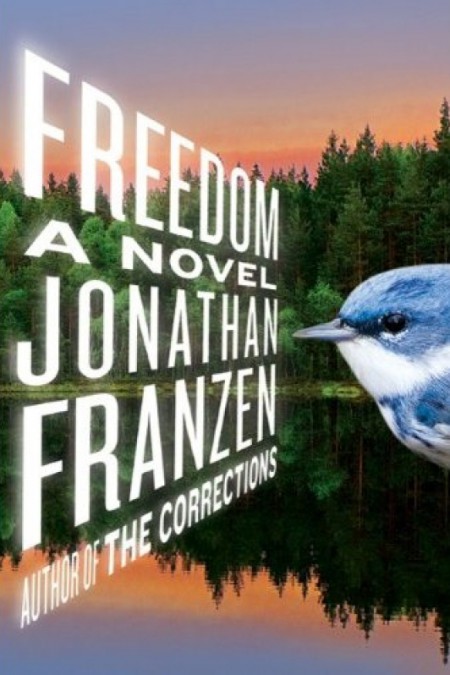finding Freedom

I mentioned recently that I had devoured Jonathan Franzen’s latest book Freedom over the Thanksgiving holiday week, staying up late into the night (until 2, 3am) reading what is one of the best books to come across my nightstand in several years. A reader challenged me to write more about what I thought of it, and I find it really daunting to do so.
This was a deeply piercing, near flawless book, and so hard to explain to others. Simply put, it’s a story about the inner lives of a handful of wounded folks over many years of struggle and conflicted motivations and messy decisions. I devoured all 500+ pages over a handful of days, disregarding sleep to pick through those tangles of the lives of the characters with Franzen. The people he created seemed so real that they stood right up off the page beyond fiction. Several times I had to just stop and roll a sentence he wrote over in my head a few times to grasp at the ache and the tiny deaths it summed up. There are some choice musical references woven in there for you folks who came looking here for a music reference (my favorite being where Jeff Tweedy was mythological friends with a main character here named Richard, a musician), along with smart political commentary and sharply incisive, eminently readable prose.
But through the intensity of Franzen’s words I found myself hit hard with deeper insights into the crags and stains in people I’ve loved or hurt or lost in real life. What if broken love is all we’ve got? Or, as the book says, “There is, after all, a kind of happiness in unhappiness, if it’s the right unhappiness.”
This is a heavy, dense book, clotted with a rich sadness and offering a riveting glimpse into the lives of other people — all the things that are going on behind the faces that we see, and the observable circumstances that we think define or explain all of who a person is. That may sound like a depressing premise for a book, but it is actually obscenely fascinating. I was also surprised to find an unlikely redemption that hangs over the book and settles in once you get through it all. Let me explain with one simple allegory.
A few days after I finished Freedom, I was driving down a road that provides a direct vista towards Pikes Peak. It was sunset and I started musing about mountaintop removal, which figures heavily into the major plot of this book. One of the main characters, Walter, works for an organization that is trying to save a certain type of songbird by designating swaths of land on their migratory routes as sanctuaries. However, the way they accomplish being able to piece together the huge tracts of land necessary (and also co-desired by the mining companies) is to literally destroy it first – blow the tops off the mountains to get at the rich coal seams underneath, and let the mining companies have at it, voraciously, until it is gone. The land is then reconstituted and rehabilitated, and can grow back into a wilderness that will be forever untouched going forward. The songbirds get their home through destruction.
Maybe I was too close to the book to see it while I was reading it, but –in a moment that felt akin to lightning striking the top of my head– it suddenly became clear to me that mountaintop removal is an allegory for the entire book. It’s like looking at one of those 3D puzzles at the eye doctor where suddenly you can see the butterfly that wasn’t there before – I suddenly saw the allegory that is the whole damn point of the book. The total obliteration and violent blowing-up of everything that is beautiful and familiar, ancestral and home; the subsequent mining of the deep veins beneath the surface; with the end result of that new growth that we are desperate for — the creation of a sanctuary where one seemed thoroughly unlikely when looking only at the steaming wreckage in the recent past. What’s left looks completely different than what we started with. I wasn’t sure at the end of the book which was better, or if one had to be.
That’s the best I can do to describe this book, and the unpredictable way that I loved it. Let Amazon try to wrestle out the plot points enough to give you a summary; I’ll just say it is about having the tops blown off your mountains, and be okay with that simplicity.
There’s also a line repeated twice in the book, fanned out years apart in its occurrence, about how characters are “still figuring out how to live.” I guess if the allegory of mountaintop removal is a visual image of what this book is about, then that sentence kind of sums it up for you textual types. So many page corners in my copy are turned down, with razor-sharp words and phrases and twists of writing, noted and committed to memory. This is the first thing I have read by Franzen; it is absolutely superb, and painful. And worth it.



 Name: Heather Browne
Name: Heather Browne